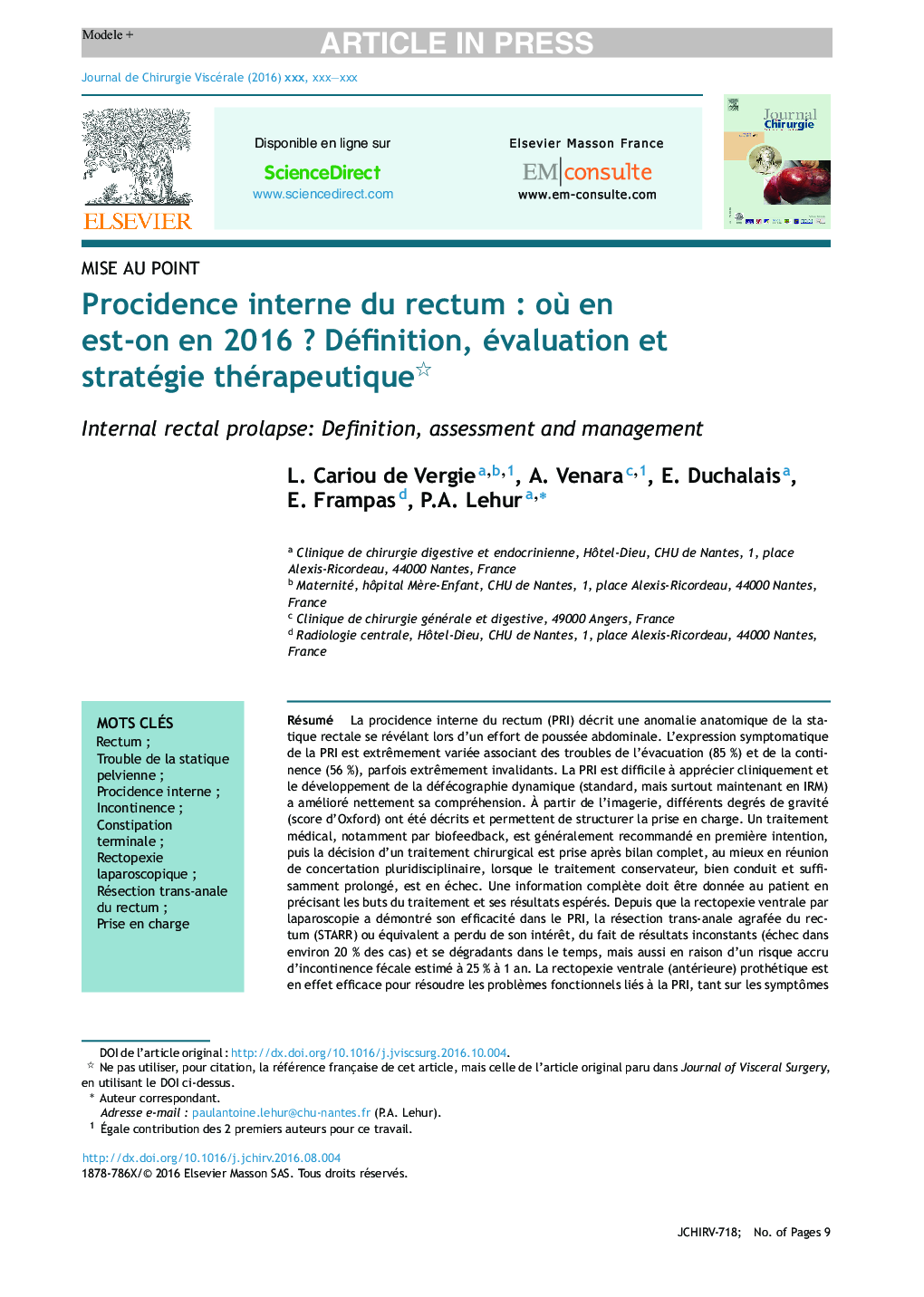| Article ID | Journal | Published Year | Pages | File Type |
|---|---|---|---|---|
| 5660236 | Journal de Chirurgie Viscérale | 2017 | 9 Pages |
Abstract
Internal rectal prolapse (IRP) is a well-recognized pelvic floor disorder mainly seen during defecatory straining. The symptomatic expression of IRP is complex, encompassing fecal continence (56Â %) and/or evacuation disorders (85Â %). IRP cannot be characterized easily by clinical examination alone and the emergence of dynamic defecography (especially MRI) has allowed a better comprehension of its pathophysiology and led to the proposition of a severity score (Oxford score) that can guide management. Decision for surgical management should be multidisciplinary, discussed after a complete work-up, and only after medical treatment has failed. Information should be provided to the patient, outlining the goals of treatment, the potential complications and results. Stapled trans-anal rectal resection (STARR) has been considered as the gold standard for IRP treatment. However, inconsistent results (failure observed in up to 20Â % of cases, and fecal incontinence occurring in up to 25Â % of patients at one year) have led to a decrease in its indications. Laparoscopic ventral mesh rectopexy has substantial advantages in solving the functional problems due to IRP (efficacy on evacuation and resolution of continence symptoms in 65-92Â %, and 73-97Â % of patients, respectively) and is currently considered as the gold standard therapy for IRP once the decision to operate has been made.
Keywords
Related Topics
Health Sciences
Medicine and Dentistry
Gastroenterology
Authors
L. Cariou de Vergie, A. Venara, E. Duchalais, E. Frampas, P.A. Lehur,
